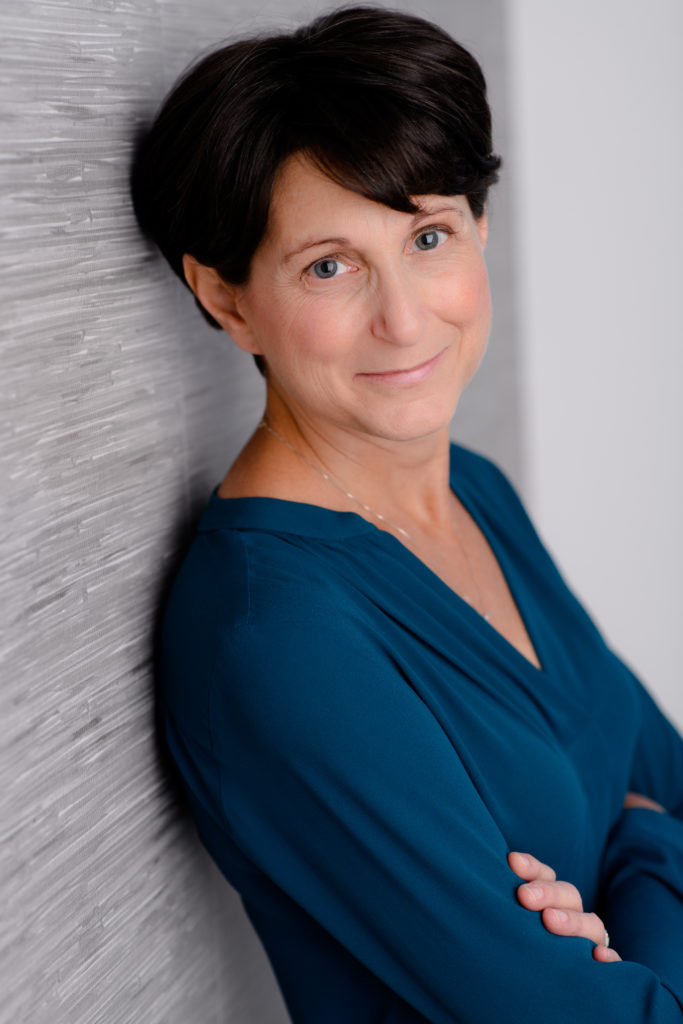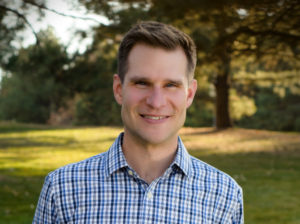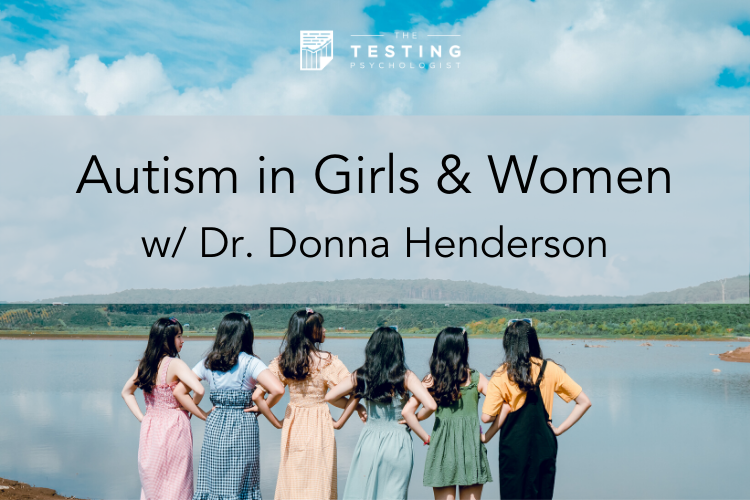Podcast: Play in new window | Download | Embed
Would you rather read the transcript? Click here.
A few months ago, I got the same email from several people within a couple of days: “Jeremy, you HAVE to have Donna Henderson on your podcast to talk about autism in girls!” At the time, Donna had just circulated a comparison table of autism symptoms and presentation in the PED-NPSY listserv, and it spread like wildfire. I’m so fortunate to have her here today to dive deep into autism and how it looks in girls and women. These are just a few things that we cover:
- Are we really missing girls with ASD?
- If these cases are so subtle, does it matter if we’re missing them?
- How do girls on the spectrum present differently?
- Typical battery for assessing autism in girls
Cool Things Mentioned
- https://www.drdonnahenderson.com/post/i-wrote-a-book
- CAT-Q (Camouflaging Autistic Traits Questionnaire)
- Simon Baren Cohen’s measures
- Social Language Development Test
- drdonnahenderson.com
- Donna’s table comparing ASD presentations
The Testing Psychologist podcast is now approved for CEU’s!
I’m excited to announce that I’ve partnered with At Health to offer CE credits for podcast episodes! Visit this link to access current and past episodes available for CE credit. You can use code “TTP10” for a discount on ALL the course credits you purchase from At Health!
About Dr. Donna Henderson

Dr. Donna Henderson has been a clinical psychologist for 25 years. She earned her doctoral degree from the School of Professional Psychology at Wright State University and subsequently worked as a staff psychologist and then Director of Acquired Brain Injury at the Gaylord Hospital in Connecticut. After staying home with her three children, Dr. Henderson joined a private practice, The Stixrud Group, in 2011. She specializes in neuropsychological evaluations for individuals with cognitive, academic, social, and/or emotional challenges, with a particular specialty in autism. Dr. Henderson is a frequent lecturer on the subtle presentations of autism, on girls and women with autism, and on parenting children with complex profiles.
About Dr. Jeremy Sharp

I’m a licensed psychologist and Clinical Director at the Colorado Center for Assessment & Counseling, a private practice that I founded in 2009 and grew to include 12 licensed clinicians, three clinicians in training, and a full administrative staff. I earned my undergraduate degree in Experimental Psychology from the University of South Carolina before getting my Master’s and PhD in Counseling Psychology from Colorado State University. These days, I specialize in psychological and neuropsychological evaluation with kids and adolescents.
As the host of the Testing Psychologist Podcast, I provide private practice consulting for psychologists and other mental health professionals who want to start or grow psychological testing services in their practices. I live in Fort Collins, Colorado with my wife (also a therapist) and two young kids.
Ready to grow your testing services? Click below to schedule a complimentary 30-minute pre-consulting call!


Comments 23
Great presentation I’m always on lookout to learn more about authors and girls.
Author
Thank you!
Dr. Sharp this was one of the best podcasts I have listened to so far. I furiously took notes and compared what I learned to what I do presently and I am definitely changing things around. Thank you so much for interviewing Dr. Henderson!
Author
Thank you! Donna was a great guest.
Gender differences always key. Finally being acknowledged, documented and shared. Dr. Henderson also touches on the issue of bias, including in her/of her own experience, another critical issue impacting evaluation and treatment…and ultimately, people’s lives.
Hi there!
I thought this podcast was terrific. The show notes include some great resources, though I was hoping the list of her questions would have been included, as well as some additional articles.
Great talk! I would like to hear more about raising awareness in pediatrician offices and schools for early intervention.
Author
Thanks, Michelle! Great idea – I’ll try to do more on this topic in the future!
Dr Donna Henderson is amazing- excellent podcast!
Author
She sure is! Thanks for listening!
Pingback: 172. The Best Episodes of 2020 - The Testing Psychologist
Excellent podcast, making reference to many useful resources, which I am interested in as a teacher and parent.
Author
Glad you found it useful!
Pingback: Could my gifted kid be... autistic? - Nurturing Neurodiversity
Is there a transcript available for this episode? I’m woman with ASD and would love to learn but I struggle with auditory learning, so I usually utilize transcripts instead of listening to the podcast itself.
Author
It looks like we haven’t transcribed this one yet, but I’ll ask my assistant to bump it to the top of the queue!
I saw your comment. I don’t know if anyone answered you, but I noticed at the top of this page t asks if you would rather read the transcript. So I’m assuming if you click on that, a transcript should pop up. I did not do that.
Thankyou so much for this, and for the transcript – I also prefer learning this way. 47 year old autistic woman, recently diagnosed & (like a lot of us) now have a passion/special interest in learning about autism. This was really helpful for me, as even after diagnosis, I sometimes have imposter syndrome (ie. am I really autistic?) and I think this is due to comparing ourselves to the older stereotypes. Diagnosis has helped me: understand myself SO much better, improve my relationships, accept myself, advocate for myself. It’s vital that this kind of information is getting out there, so that a new generation of autistic girls can get the relevant help much earlier. My heartfelt thanks for your work, both of you.
Author
I’m so glad that this episode was helpful in your journey!
Wow. Thank you so much for this podcast. I am a 15 year old girl and have been taking a recent interest in psychology for the past 6 months or so. I have always known that there was something different about me, but I was never able to put my finger on it. In these 6 months I’ve learned about the DSM-5 and various diagnosis through a psychology class provided by my school but didn’t think I was really even allowed to think that being neurodivergent was something applicable to me since I didn’t think I met the requirements of showing symptoms during childhood. I became aware that autism may present differently in girls, and after rereading the symptoms I heavily considered it to be a possibility. This podcast really finalized my thoughts on this and I couldn’t help but cry while listening because of how relieved I am. I always have felt so out of place because nothing that is socially normal has ever come easy to me. Every single thing Dr. Donna has said 100% applies and it all makes sense now. I am so grateful for this, thank you for helping me come to this revelation! Of course I need an official diagnosis, but for now I am glad that there is at least an explanation to why I am the way I am. I hope to one day become a psychologist and help girls like me understand that they aren’t defective. So again, thank you.
Hi! Going through similar feelings right now. Really appreciate the research this podcast provided.
Thank you for looking out for autistic women and girls. As an autistic woman, I’d like to ask whether you examined why you had such a “visceral reaction” to the 17 year old you mentioned? And whether or not similar reactions by other healthcare professionals they’ve encountered might be turning autistic women and girls off to the idea of getting “assistance” from mainstream psychologists? I mask heavily in medical environments for that very reason (some of us can tell).
Author
Thanks for the comment – you raise such a good point about providers’ reactions and the impact on our clients/patients. I’ll certainly be reflecting on this again now that it’s been a few years!